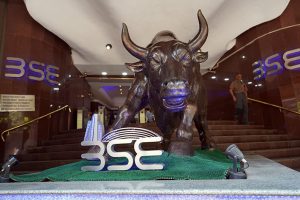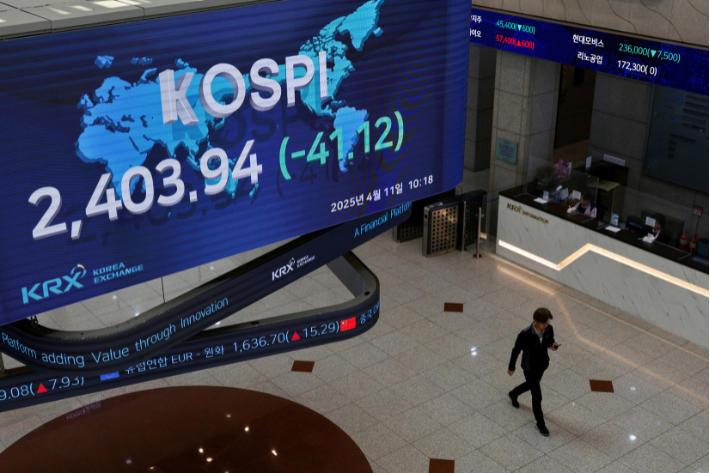Asia’s major stock indexes experienced another mixed day on Wednesday with the attempt on Donald Trump’s life still causing ripples while many eyes were also on Beijing’s policy-makers.
A gathering of China’s key leaders continues until Thursday and the wait for more stimulus announcements to revive the world’s No2 economy saw subdued trading across much of the region.
Investors across Asia have also been unnerved by the surge of support for Trump following Saturday’s failed assassination attempt, fearing China will be a central focus again if Trump wins the US presidential race.
Also on AF: PwC Slashes Financial Audit Staff in China After Clients’ Mass Exit
Japan’s Nikkei share average surrendered all of its early gains to end in the red, as investors sold heavyweight chip-related stocks to book in profits.
The Nikkei share average fell 0.43%, or 177.39 points, to close at 41,097.69, while the broader Topix was ahead 0.37%, or 10.71 points, to 2,915.21.
The slide came despite Wall Street stocks rising overnight and the Dow Jones Industrial Average hitting an all-time closing high on Tuesday after US retail sales data supported the view that the Federal Reserve is approaching its easing cycle.
Defence-related stocks, however, extended their gains from the previous session, with Kawasaki Heavy Industries and Hitachi Zosen up 10.43% and 6.58% respectively, as higher chances of Donald Trump winning the US presidential race spurred so-called “Trump trades.”
China stocks struggled for momentum, with major indexes trading in narrow ranges, as investors awaited policy news from the leaders’ gathering in Beijing. Market sentiment was also dampened by data showing slower-than-anticipated economic growth in the second quarter.
Adding to the uncertainty, Trump’s choice of JD Vance as his vice-presidential running mate signalled a likely tough stance on China if Biden is defeated.
The Shanghai Composite Index lost 0.45%, or 13.45 points, to 2,962.86, while the Shenzhen Composite Index on China’s second exchange dropped 0.78%, or 12.52 points, to 1,599.29.
The Hang Seng Index, though, edged up 0.06%, or 11.43 points, to 17,739.41.
New Zealand Shares in Two-Year High
Stocks in Taiwan slipped after US presidential candidate Donald Trump sounded lukewarm in his commitment to the island’s defence. Chipmaker TSMC’s stock fell 3%, wiping out close to $30 billion in market value, after Trump questioned US support in an interview.
And New Zealand shares hit their highest since March 2022 after data showed inflation slowing, though the rates market dipped and the currency rose on sticky domestically driven inflation.
MSCI’s broadest index of Asia-Pacific shares outside Japan was flat.
Globally, gold hit a record and bonds rallied as markets prepared for interest rates to fall.
Sterling ticked higher after British inflation held at 2% year-on-year in June against forecasts for 1.9%, with services inflation stuck at an uncomfortable 5.7%.
FTSE futures rose 0.2% and S&P 500 futures traded 0.2% lower after the cash index made a record high on Wednesday.
Taiwan Dollar Slips
The Taiwan dollar slipped slightly to a two-week low. China’s yuan steadied at 7.2673 per dollar as markets waited on news from Beijing.
Treasuries held gains that had pushed 10-year US yields to four-month lows overnight after Federal Reserve Chair Jerome Powell said recent cooling in inflation readings “add somewhat to confidence” that consumer prices are coming under control.
Fed funds futures have fully priced a US rate cut for September, followed by two more before the end of January 2025.
Ten-year yields were steady at 4.167% and two-year yields hovered at 4.44%. Bond markets in Australia, Japan and South Korea rallied.
The Japanese yen was steady at 157.9, well off a 38-year low of 161.96 touched earlier in July after a few rounds of suspected intervention from Japan late last week. The euro was steady at $1.0905.
Oil prices slipped slightly, weighed by signs of weakening demand from China. Brent crude futures fell nine cents to $83.64 a barrel and US crude futures were seven cents lower at $80.69 a barrel.
Key figures
Tokyo – Nikkei 225 < DOWN 0.43% at 41,097.69 (close)
Hong Kong – Hang Seng Index > UP 0.06% at 17,739.41 (close)
Shanghai – Composite < DOWN 0.45% at 2,962.86 (close)
London – FTSE 100 < DOWN 0.34% at 8,137.47 (0934 BST)
New York – Dow > UP 1.85% at 40,954.48 (Tuesday close)
- Reuters with additional editing by Sean O’Meara
Read more:
Trump’s VP Choice Raises Threat of New Big Tech Crackdown
TSMC Shares Fall on Trump Remark ‘Taiwan Should Pay for Defence’
Chinese Brokerage to Boost Investment Banking in Southeast Asia
Trump Tech War Fears Hit Hang Seng, Earnings Hopes Lift Nikkei























